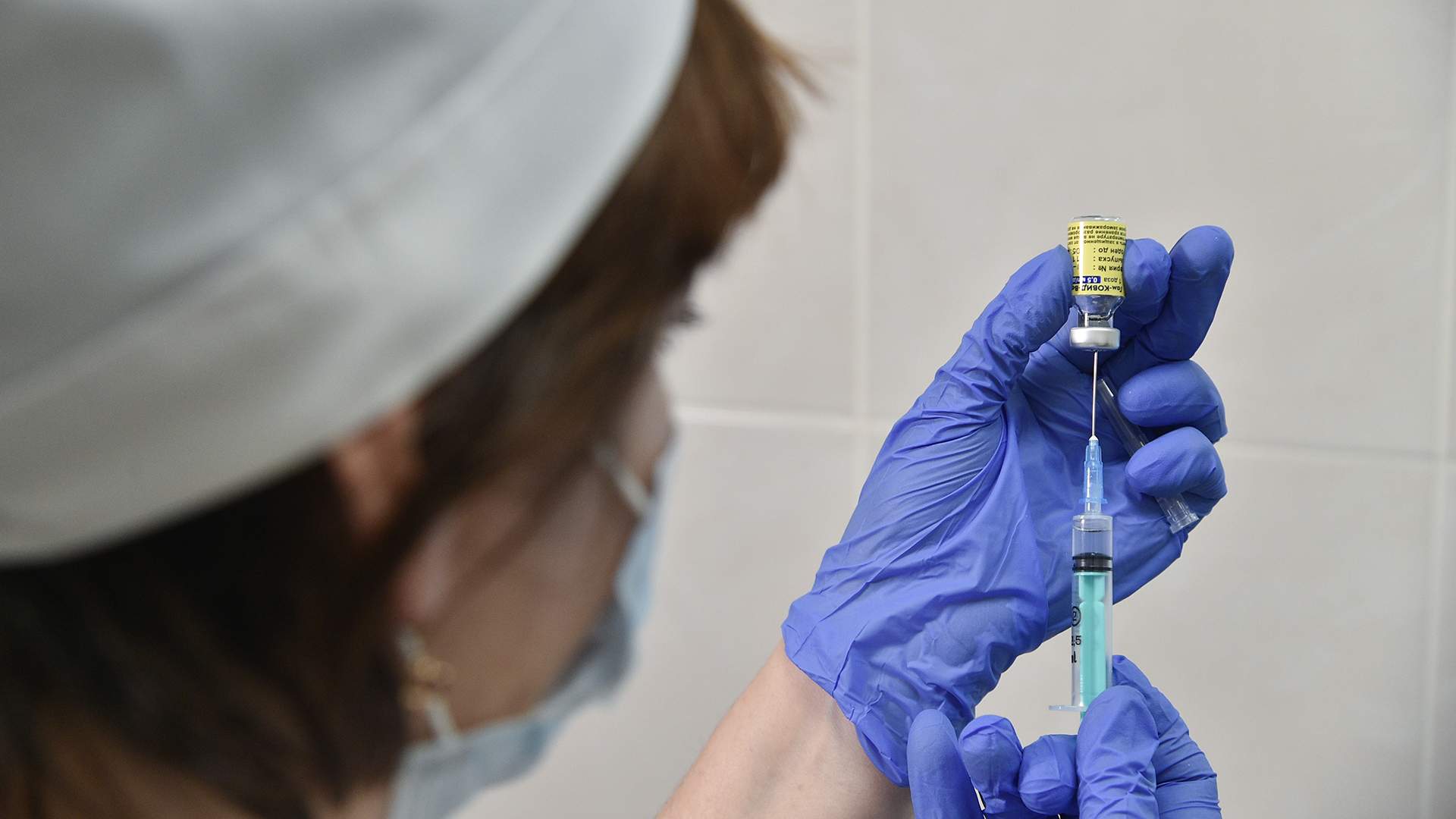- Статьи
- Society
- Covid Persistence: Gamalea Center to test Sputnik's effectiveness against new strains
Covid Persistence: Gamalea Center to test Sputnik's effectiveness against new strains

In Asia, there is a new surge in the incidence of coronavirus caused by a decrease in the population's immunity. The situation is worrisome, Alexander Gintsburg, director of the N.F. Gamalei National Research Center for Epidemiology and Microbiology, told Izvestia. At the same time, it is unknown whether Sputnik V will be effective against new pathogen variants. According to the scientist, the vaccine has not been updated since 2023, so now it has been decided to investigate how its antibodies protect against common subspecies in Russia, and, if necessary, to change the antigenic composition of the drug. Details can be found in the Izvestia article.
The coronavirus wave in Asia
The spread of new COVID-19 strains in Asia is worrying, Alexander Gintsburg, director of the N.F. Gamalei National Research Center for Epidemiology and Microbiology, told Izvestia. At the same time, it is impossible to say exactly how effective the Sputnik V vaccine will be against them without additional research, since many antigenic changes have recently occurred with the virus.
According to the scientist, the updated Sputnik was created in 2023. And when the last time the institute tested the neutralizing ability of the vaccine to topical variants of the pathogen, its significant decrease was already recorded.
— I do not know how the vaccine will work against the strains that are currently spreading in Asia. For two years now, we have not conducted an assessment of Sputnik V virus neutralization to new types of coronavirus. There is no antigenic update. However, as an initiative, we decided to investigate how the vaccine's antibodies protect against common subspecies in Russia, and, if necessary, to change the antigenic composition of the drug," said Alexander Ginzburg.
The situation with the incidence of COVID-19 is particularly alarming in China, Singapore and Thailand, according to local media. In Hong Kong, the rate of positive tests for coronavirus rose to 11.4%, exceeding last year's peak. The head of the city's Health Protection Center, Albert Au, said that the activity of the virus is "quite high" and stressed the importance of taking precautions.
In Singapore, the Ministry of Health reported a 28% increase in the number of patients in just a week. The main circulating strains are LF.7 and NB.1.8, which account for more than two thirds of all identified cases. At the same time, the number of hospitalizations increased by about 30%. More than 53,000 cases of COVID-19 and 16 deaths have been recorded in Thailand since the beginning of the year, most in Bangkok.
According to Rospotrebnadzor, in the Russian Federation, the vast majority of circulating genovariants still belong to JN.1, of which LF is considered the dominant subtype.7. The JN line.1 also remains dominant worldwide.
— Recently, Southeast Asian countries such as China, Singapore and Thailand have recorded an increase in the incidence of new coronavirus infection, which may be associated with a weakening of the population's immunity since the intensive circulation of the COVID-19 pathogen or vaccination. It should be noted that the circulating variants of coronavirus do not cause a severe course of the disease and are not highly contagious," the department noted.
Are vaccines effective against COVID-19
The new surge in the incidence of coronavirus in Asia is due to the fact that the protection of the population, which is created by population immunity, is beginning to weaken, said Albert Rizvanov, head of the Center for Excellence "Personalized Medicine" at Kazan (Volga Region) Federal University, corresponding member of the Academy of Sciences of the Republic of Tatarstan.
— COVID-19 is already considered an endemic virus, that is, one that we will live with all the time. And such waves will happen from time to time. It is also believed that at the moment, the vaccine protection that was created for previous strains is still effective," the scientist told Izvestia.
According to the expert, vaccination and standard personal hygiene precautions are recommended for risk groups (older people, with chronic diseases or weakened immune systems). And if symptoms appear, you should consult a doctor and get tested.
The currently circulating strains come from the Pirol variant, they can be called the great-grandchildren of Omicron, said Andrey Pozdnyakov, an infectious disease specialist at Invitro.
— These strains, in fact, do not differ in their pathogenicity and virulence from other Omicron generations. Their danger is quite low. But people's population immunity has decreased, plus new variants are somehow bypassing it, and now few people are vaccinated. Therefore, the incidence has increased," the specialist told Izvestia.
According to the expert, testing issues are also important. It is necessary to control morbidity and strain formation. As for the general infection rate of SARS, it has been decreasing since April, as have cases of coronavirus.
Antibodies to previous strains of last year make it possible to partially neutralize the new virus — but all this in vitro (in vitro), said Mikhail Bolkov, a researcher at the Institute for the Study of Aging at the Russian Gerontological Research and Clinical Center of the Pirogov Russian National Research Medical University of the Russian Ministry of Health. According to initial data, the clinical manifestations of the new variant are the same as those of the previous ones that year, and there is no reason to expect an aggravation, he concluded.
Переведено сервисом «Яндекс Переводчик»





